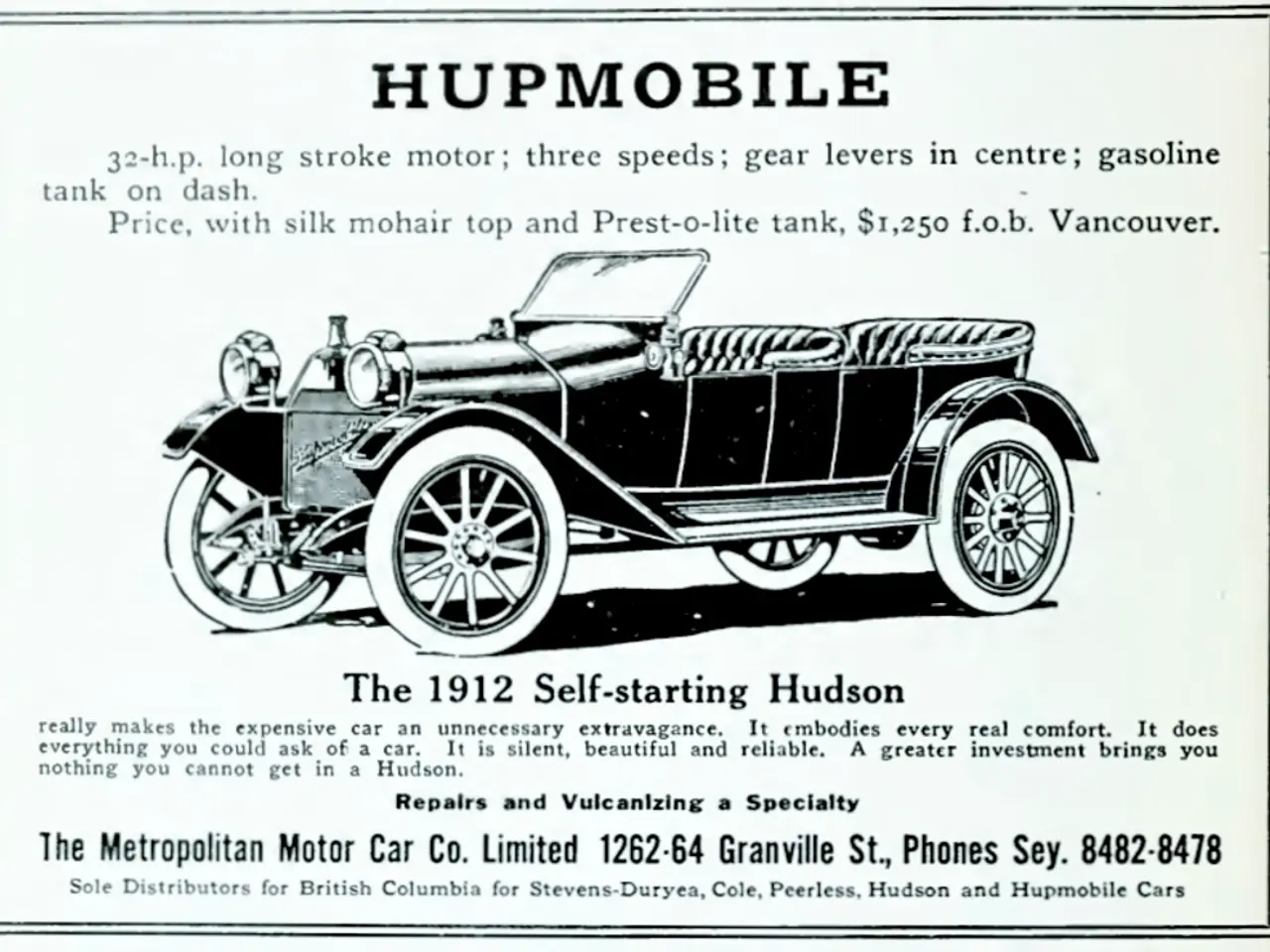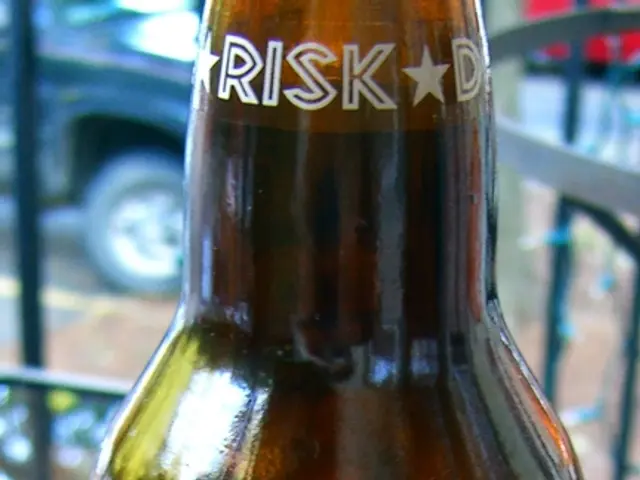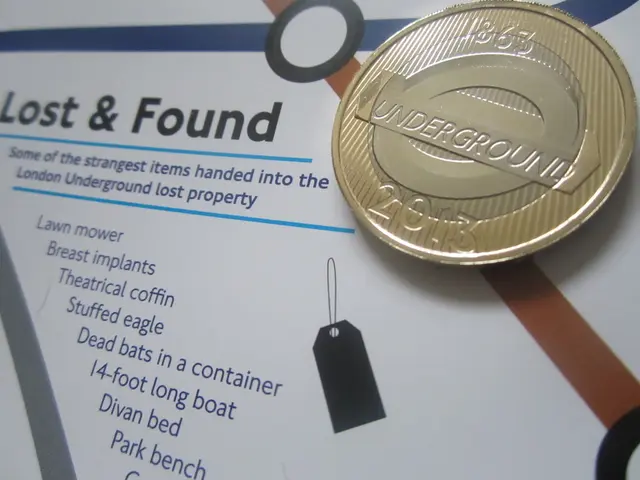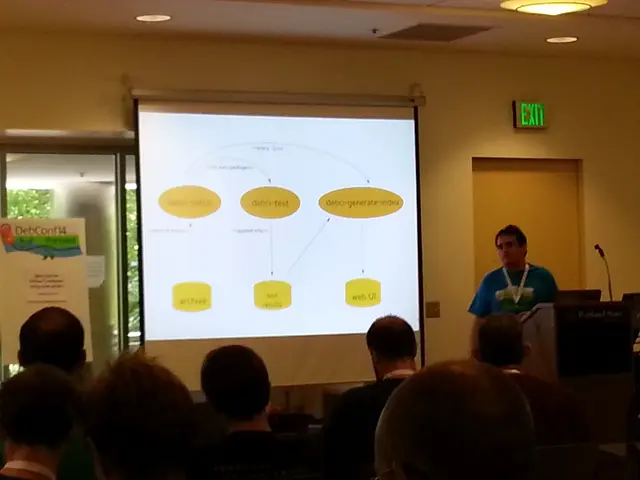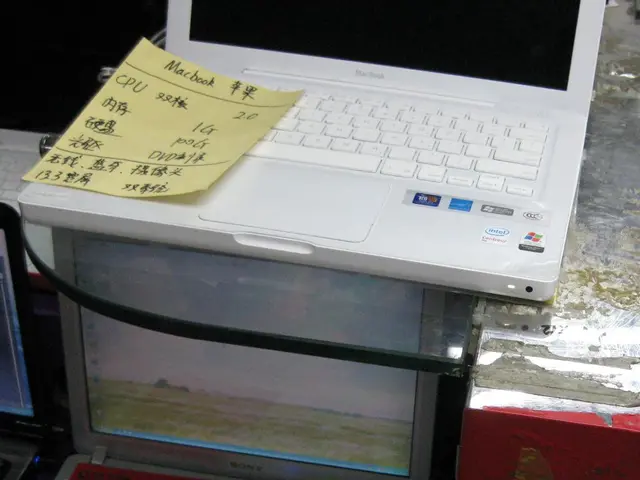California Ponders Potential Stoppage of Tesla Production Due to Alleged Misrepresentation in Ads
In a landmark case, the California Department of Motor Vehicles (DMV) has filed a lawsuit against Tesla, alleging that the company's marketing of its Autopilot and Full Self-Driving Capability (FSD) features is misleading. The lawsuit, which seeks to suspend Tesla’s dealer license in California for at least 30 days and demands restitution, underscores the seriousness of the allegations[1][2][3].
The lawsuit, currently being heard in an administrative court in Oakland, California, centres around claims that Tesla's Autopilot system failed to prevent a fatal accident in Miami this week. According to a video retrieved by the police from the car, the Autopilot system had identified the area where the Chevy Tahoe was parked as outside of "driveable space," but the car continued through the T intersection with no decrease in speed[1].
The lawsuit relies on four phrases of product descriptions from Tesla's website which the state believes are misleading to the point of being false advertising. One claim made by Tesla, about the car's ability to navigate and park itself, has raised particular concern from the state of California. Mary Cummings, a George Mason University professor and expert in autonomous driving systems, testified that Tesla Autopilot is defective because it allows operation in domains it wasn't designed for[1][3].
The impact of this lawsuit extends beyond Tesla, as it highlights increasing regulatory scrutiny over automaker claims related to autonomous driving. Authorities challenge terms like "Autopilot" and "Full Self-Driving" as misleading since these systems require human attention and do not achieve true self-driving capabilities, setting a precedent for clearer, more accurate marketing. Similar actions have already occurred internationally, e.g., a German court banned Tesla from using "Autopilot" in advertising, and UK authorities disallowed FSD marketing there[1].
This case may push the broader automotive industry and regulators to standardize terminology and marketing disclosures for driver-assistance technologies, avoiding consumer misconceptions about current autonomous vehicle capabilities[1][2][3]. If the jury finds for the plaintiff, it could damage Tesla’s reputation and hurt its sales and stock price.
Tesla’s reputation faces notable damage from allegations that it exaggerated the capability of its technologies, as state authorities claim Tesla created "incorrect perceptions" among consumers through its product descriptions and marketing statements, such as promises that the car can drive itself without driver intervention on short and long trips[2][3]. The ongoing dispute and potential suspension of Tesla’s sales licenses in a major market like California amplify public and investor concerns about the company’s transparency and accountability[2][3][4].
Customers in San Francisco and Silicon Valley are strongly interested in high-tech and electric vehicles, with Tesla selling more cars there than anywhere else in the US. The outcome of the lawsuit may influence industry standards nationally, potentially leading to changes in how other manufacturers market semi-autonomous features offered in their own products.
[1] https://www.reuters.com/business/autos-transportation/california-dmv-sues-tesla-alleging-false-advertising-autopilot-system-2023-03-15/ [2] https://www.cnbc.com/2023/03/15/california-dmv-sues-tesla-over-autopilot-advertising-claims.html [3] https://www.wsj.com/articles/california-dmv-sues-tesla-over-autopilot-advertising-claims-11678917283 [4] https://www.bloomberg.com/news/articles/2023-03-15/california-dmv-sues-tesla-over-autopilot-advertising-claims-1117498455
- The lawsuit against Tesla, concerning the misleading marketing of Autopilot and Full Self-Driving Capability (FSD) features, has sparked a debate about clearer, more accurate marketing for electric vehicles, particularly in the realm of driver-assistance technologies.
- The dispute over Tesla's marketing claims about its Autopilot system's ability to navigate and park itself has raised concerns about the accurate representation of electric vehicle technology, not only in California but also internationally, affecting the industry's standards and consumer perceptions.
- In the wake of the Tesla lawsuit, sports and technology enthusiasts in San Francisco and Silicon Valley, known for their interest in high-tech and electric vehicles, are watching closely as potential changes to industry standards nationwide may impact the marketing of semi-autonomous features in various electric vehicle models.
